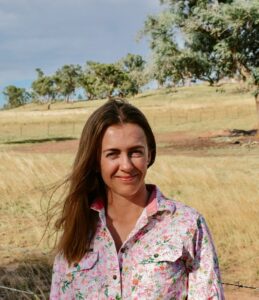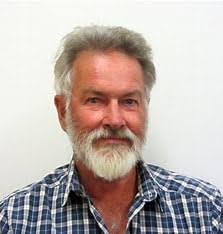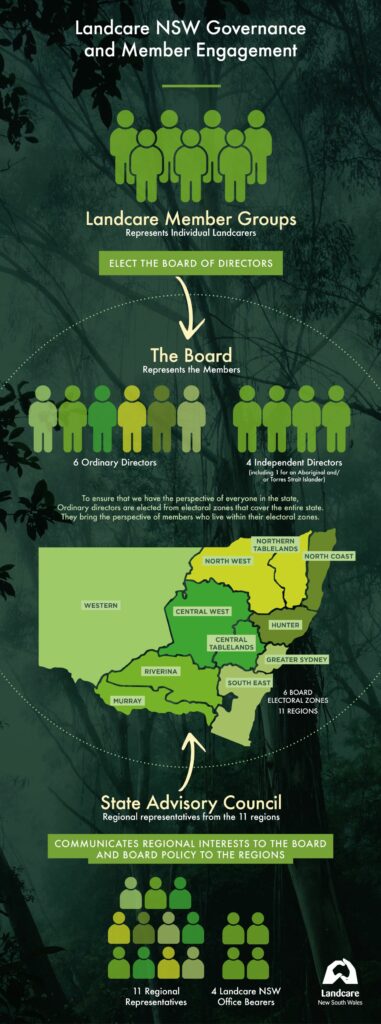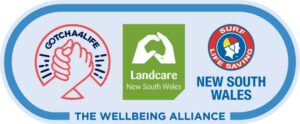Following an extensive and thorough recruitment process driven by the Landcare NSW Nominations Committee, Landcare NSW would like to introduce the three Board Director candidates to be presented at the Landcare NSW Annual General Meeting on 10 November 2023. If accepted by voting Landcare NSW Members at the AGM, the candidates will join the Landcare NSW Board in December 2023.
The Landcare NSW Board comprises six Ordinary Directors to bring the perspectives of the Members living within the Ordinary Director’s respective Board Electoral Zone and up to four Independent Directors appointed to bring any additional skills, expertise, and experience that the Board requires.
Our Directors bring a wealth of skills to their roles. Please read the below to get to know Ordinary Director candidates Bruce Maynard, nominated to bring the perspectives of the members living in the Central West and Central Tablelands electoral zone; Wayne Chaffey, nominated to bring the perspectives of the members living in the North West and Northern Tablelands electoral zone; and Matilda Ferguson, nominated to bring the perspectives of the members living in the Western electoral zone.
Matilda Ferguson
Director Candidate for Region: Western
Member of: Warrego Landcare
Why are you seeking to serve Landcare NSW Limited as a director?
“I am seeking to serve Landcare NSW as a Director in order to broaden my contribution to the sustainability of the environment across our State. Calling Western NSW home, I am passionate about our environment and am looking to support our Landcare members across the region.
I currently lead an agricultural asset management company that manages a portfolio of grazing properties across Western NSW. Spending a lot of my time outside in the environment and constantly seeking optimal ways to be managing land, I understand the critical importance of Landcare NSW and the work it does.
The opportunity to serve Landcare NSW as a Director is a valuable opportunity, and one that I would be committed to. With the health of our environment being so linked to that of our communities, I am seeking to serve Landcare in an effort to ensure that our future generations can thrive.”
What do you hope to contribute to the Board of Landcare NSW Limited?
“I hope to contribute my knowledge and understanding of Western NSW to the Board if I am elected. I also hope to contribute a strong understanding of the NSW Government and political system developed through time as a public servant. Having worked closely with both the office of the Minister for Agriculture and Western NSW and the NSW Agriculture Commissioner, I hope to contribute my knowledge of the policy and legislative frameworks supporting the State’s agricultural sector.
Having a range of experience across Western NSW as well as with agricultural management, the public service and not-for-profit organisations, I hope to contribute this knowledge to positively support board-level decision making and processes.”
 Bruce Maynard
Bruce Maynard
Director Candidate for Region: Central West/Central Tablelands
Member of: Macquarie Valley Landcare
Why are you seeking to serve Landcare NSW Limited as a director?
I wish to serve as a director on Landcare NSW as a way of extending the knowledge and experience that I have had the privilege of receiving through the association with Landcare over 35 years. The involvement has spanned from on ground works and active involvement in local and regional Landcare group initiatives.
I served in a specialist position as Conservation Grazing Officer for the Central West and Lachlan regions and have continued natural resource management extension activities with multiple Landcare groups. In 2022 I was humbled to be awarded Landcare’s highest honour with the Bob Hawke award for excellence in sustainable agriculture. Serving as a director for Landcare NSW would be a privilege in order to assist in progressing real projects that make a difference for communities and landscapes across the state.
What do you hope to contribute to the Board of Landcare NSW Limited?
I hope to contribute knowledge, experience and advice to provide positive suggestions and advice to board level decision making. The multi-level experience in research/development, extension, farming, grazing and public administration from work conducted across Australia can be a useful skillset for board decision making processes. I would seek to contribute innovative and practical ideas, advice and suggestions if serving on the board with a view to achieving the greatest amount of support to the organisation as a whole and importantly the vast range of community volunteers that are the foundation of Landcare.”
 Wayne Chaffey
Wayne Chaffey
Director Candidate for Region: North West/Northern Tablelands
Member of: Tamworth Regional Landcare Association
Why are you seeking to serve Landcare NSW Limited as a director?
This is a challenging time in the history of the Earth. We are experiencing, in the Anthropocene, unprecedented global warming; changing weather patterns, extinctions and reduction in biodiversity, all stimulated by the actions of humans. Landcare, as an organisation, is in the ‘box seat’ to spread the word, around an array of ideas and activities, to all communities, to adopt to help combat these changes and attempt to heal our changing world. Sustainability, biodiversity, natural assets, regenerative agriculture, biosecurity, carbon sequestration are just a few of the buzz words that are currently being regularly used and delivered in Landcare activities across the state to support those wanting to make a difference. The Board has the responsibility of maintaining currency in this research-dominated sphere to ensure a flow-on of ‘new knowledge’ through our staff to communities.
A plethora of outstanding ideas can be shared across regions through the State Advisory Committee (SAC), but it is the Board that must ensure that the best ideas/activities/programs/philosophies become embedded throughout the organisation.
Having worked with a number of Landcare organisations since the 1980’s, at local, regional and state levels, I believe I have the knowledge, skills and experience to represent landcarers of the Northern Tablelands (New England) and North West on this important Board. The Board of Directors has the responsibility of delivering on the organisation’s Mission and Vision through governance and oversight of the management team as it executes the Landcare NSW Strategic Plan.
The diverse streams of landcarers in our regions need to be acknowledged and strongly supported to ensure that public and privately sourced funds are put to best use across the state. We must put in place well-supported and qualified staff, receiving ongoing training, to provide leadership in communities and to deliver programs centred around the care for our land, the environment and communities.
Having spent the vast majority of my life on an agricultural holding, I have witnessed a variety of philosophies and strategies employed around the environment, including farming and grazing operations. I have acquired, through a range of learning platforms, ‘new knowledge’ and transitioned/evolved from old paradigms to new ways of understanding and working with the natural world.
As a Science Educator and Secondary Principal for over four decades, I remain a research-based, lifelong learner, completing numerous courses since transitioning back to the farm; I have the knowledge and skills to serve Landcare NSW as a director, and would welcome the opportunity to do so. I have experience in managing multi-million-dollar projects and managing sites with over 1000 people on site each day. This is also an opportunity for me to make a difference for our children’s, children’s children.
What do you hope to contribute to the Board of Landcare NSW Limited?
Working in the state education system for over four decades (including time as a Principal and Executive Principal of schools, along with Regional Professional Learning responsibilities and overseeing the development of a multi-million dollar Trade Training Development across a number of local secondary schools) has provided me with a range of skills in human resource management, site management, strategic planning, financial management, daily operational management, communication skills (written and oral), working with the media, interpersonal skills, using technology, and meeting timelines and working within budget limitations.
After decades of work with a variety of Landcare groups (local, regional, state and Landcare Australia), I have a good understanding of the range of activities/projects/programs that can be supported by our staff.
It would be a privilege to have the opportunity to use these skills to support the people of the regions I represent, as well as all landcarers state-wide to work toward achieving the goals of Landcare; growth of Landcare (to 1M by 2040), as the go-to place for Caring for the Land projects, where people want to identify as ‘Landcarers’, where values in Natural Conservation, Environmental Management and Agricultural Production prevail, and where landcarers can unite and lobby with a ‘national voice’ for the benefit of all.
As a Board member, it would be incumbent upon me to ensure that we work with an adequate technological system where digitisation ensures simpler data collection and reporting systems to support best practice. Where we expand the breadth and strength of investors in our organisation to secure environmental and financial sustainability. Where we explore, assess and report on the natural capital assets of our landcarers to build an appreciation of the environmental services to be gained from the natural world. Where we build the strength of all programs; specifically the cultural development programs involving First Nations People to facilitate ongoing healing and reconciliation, along with acknowledgement of the management of country prior to colonisation. Where we develop an expansive Communications Strategy to involve a broad range of people from all walks of life….. from ‘Cuppa-Chats’ with farmers in the paddock…. to ‘Trees in the House! Parliamentary Friends of Landcare’. And finally, where we build the future human resources for Landcare through increasing the numbers of young people in Landcare, through supporting youth education and establishing new Intrepid Landcare groups.
Board Directors are required to be conversant with legal and community expectations; speak fluently employing financial literacy, know how to pull the strategic and financial levers to ensure performance and sustainability values are achieved, deliver on short and long term priorities, establish future strategic directions, be articulate decision-makers, and understand boardroom dynamics.







 Bruce Maynard
Bruce Maynard Wayne Chaffey
Wayne Chaffey

